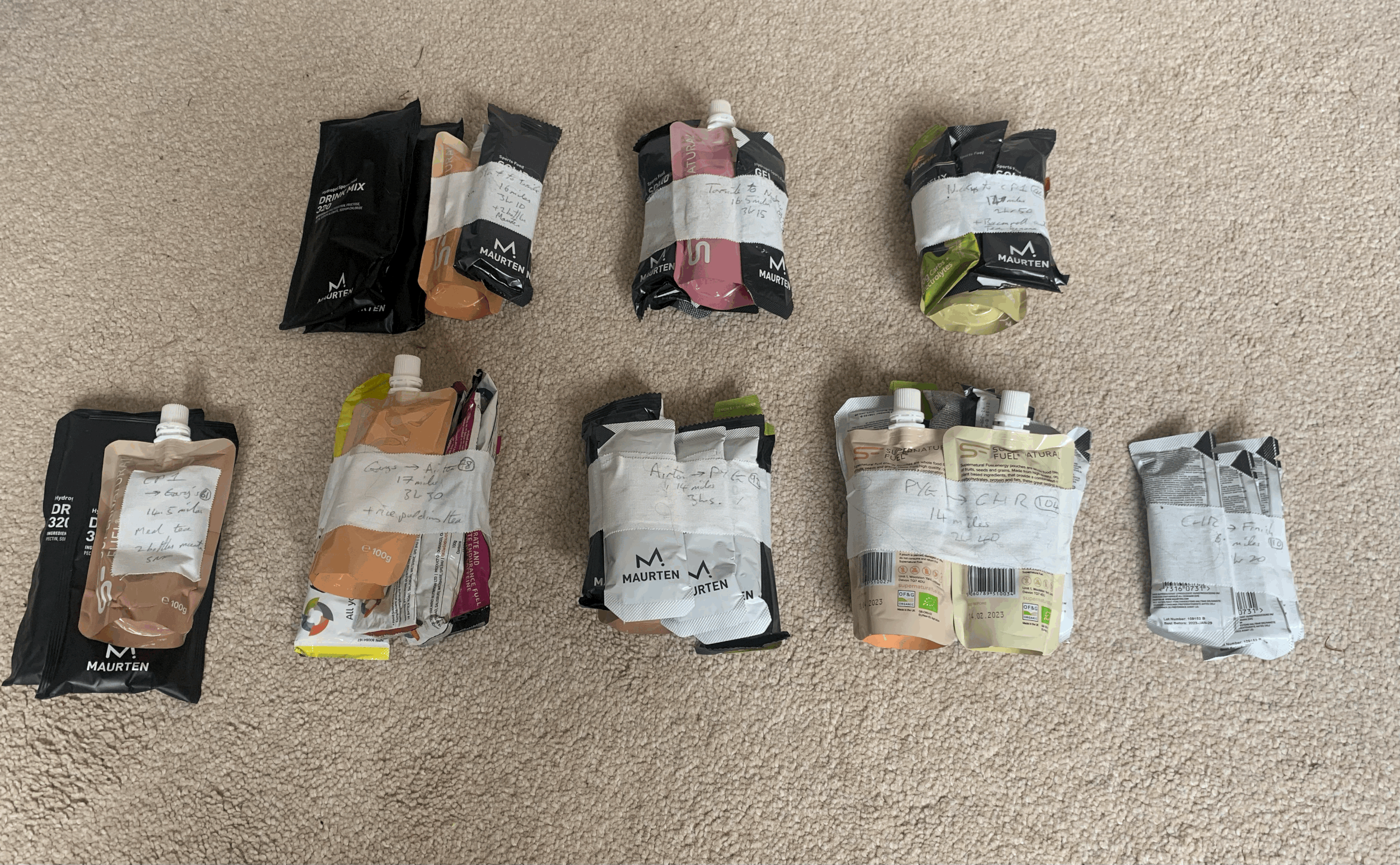Nutrition Tips for Ultramarathon Training and Racing
If you are planning to run an ultramarathon, you will be pushing your body to its limits during both training and racing. Nutrition plays a critical role in ensuring that you have enough energy to sustain your efforts and avoid injury or illness. In this post, we will discuss some nutrition tips to help you prepare for your ultramarathon, both for day-to-day training and race planning.

General Nutrition for Ultramarathon Runners
First and foremost, it's essential to eat enough food to sustain your training. As an ultramarathon runner, you'll be pushing your body hard in training, and energy deficiency can lead to illness and injury. A well-balanced, minimally processed diet is crucial, including plenty of fruits and vegetables, healthy fats, good sources of protein, and enough carbs to fuel your workouts.
Calculating Your Specific Nutritional Needs
To calculate your specific needs, you can use tools like the Precision Nutrition Macros calculator, which helps you plan your day-to-day nutrition. Once you have an idea of the rough volume and percentages of your macros, you can be confident that you're eating enough to sustain your training.
Day-to-Day Nutrition
To sustain your training, you need to consume a well-balanced diet that includes sufficient carbohydrates, healthy fats, and proteins. There is a risk of energy deficiency in ultra-endurance training, which can lead to illness and injury. Thus, it is essential to ensure that you are eating enough food to meet your energy needs. Elite athletes often struggle with problems due to "Relative Energy Deficiency Syndrome" or REDs, but this condition can affect everyone. So, the key message is to "eat enough."
To determine your specific dietary needs, you can use the Precision Nutrition Macros calculator. This tool helps you plan your daily nutrition by calculating the rough volume and percentages of macronutrients (carbohydrates, fats, and proteins) that you need to consume.
Improving Your Cooking Skills
Improving your cooking skills is also one of the best skills you can develop as an athlete. If this is an area that needs developing, consider getting a few new cookbooks and spending more time experimenting in the kitchen.
Factors to Consider
Factors to consider when deciding on your training and racing nutrition include the duration and intensity of your run, the amount your stomach can handle, and how much your muscles need. As we exercise, we shunt blood from our guts to our muscles, making it harder for our guts to do their job. However, you can train your gut to increase the amount of calories your stomach and intestines can process during exercise.
Race Planning
One of the most common reasons people fail to finish an ultramarathon is gastrointestinal (GI) distress, such as diarrhoea, vomiting, cramping, and inability to eat and drink. You can avoid these problems with appropriate planning. There is a wide range of sports nutrition products available on the market, but it's essential to choose the ones that work best for you.
Some athletes prefer to keep their calories and hydration separate, consuming only water and solid foods for calories. Others prefer to use energy drinks that combine calories and hydration. The science on the need for electrolytes in your drink is mixed, so it often comes down to individual experimentation.
If you are going hard for 8-10 hours, you can get away with fluids only, but if you are going longer, or at a lower intensity, you can introduce solids. Your stomach and intestines may have trouble processing food during exercise, so it's important to test what works best for you during training. You can increase the number of calories your gut can process during exercise by practicing.
Keeping our ‘rule of 3’ going, think about what your sources of sweet, savoury and salty will be. Then write down what your core choices will be for these, your back up foods, and your ‘will work if needed’. That way you have a plan b and a plan c should anything go wrong in the race.
To plan your training and race nutrition, you can use the CORE nutrition planning web-based app, which helps you test different plans to see what works best for you.
Carry all your drink and food with you or run loops and refill to simulate race-day aid stations for long runs. This will also improve your skills at refilling bottles and not wasting time in an aid station.
Testing Your Nutrition Plan
To test your nutrition plan, Asker Jeukendrup and his colleague Bill Braun have produced a web-based app called CORE nutrition planning. Through this app, you can plan your training and race nutrition, test it, and see what works for you.
Carrying Your Food and Drink
For long runs, you may decide to carry all your drink and food with you, or another option is to run loops and refill to simulate race-day aid stations. This will also improve your skill at refilling bottles and not wasting time in an aid station.










